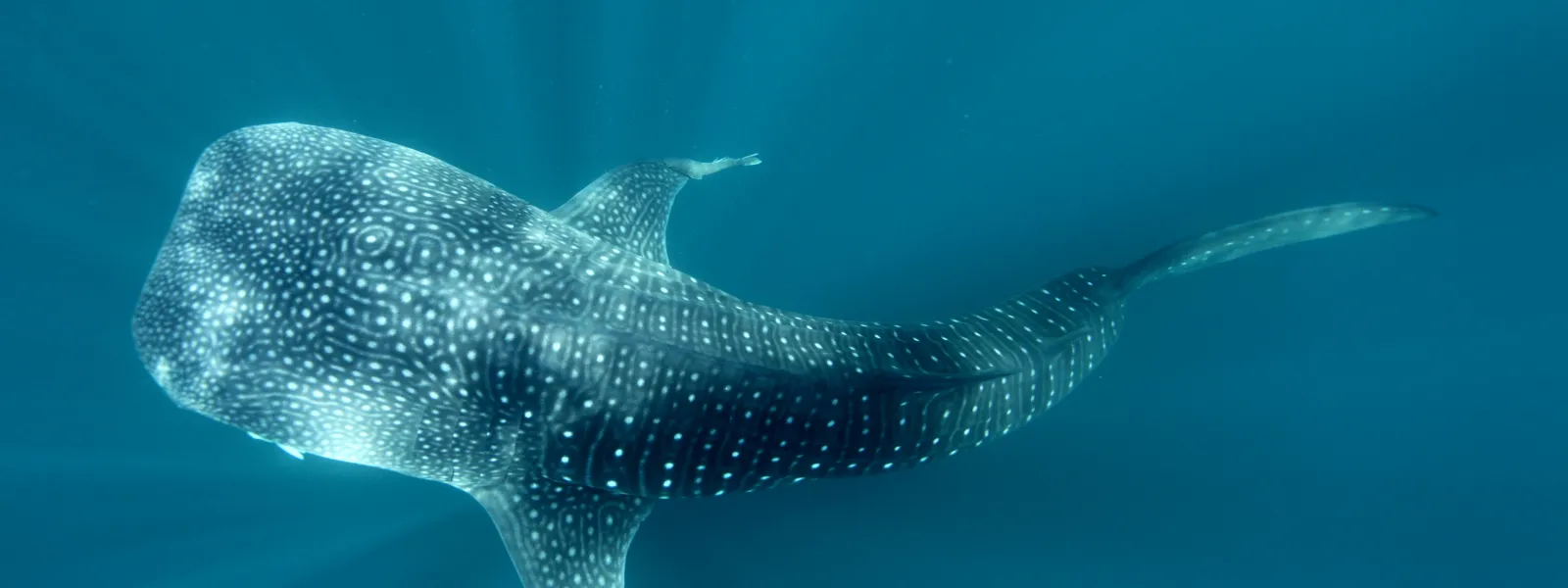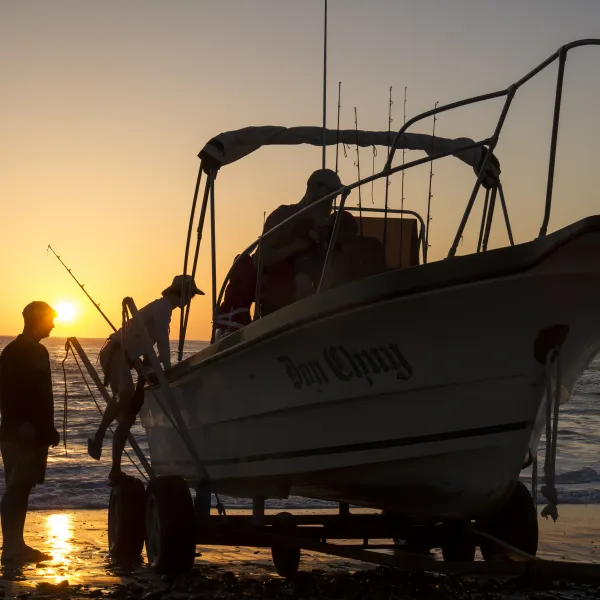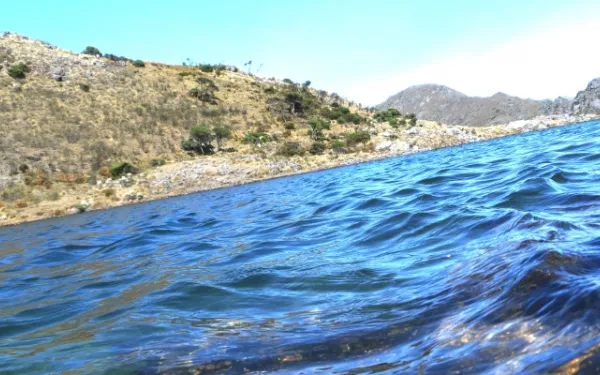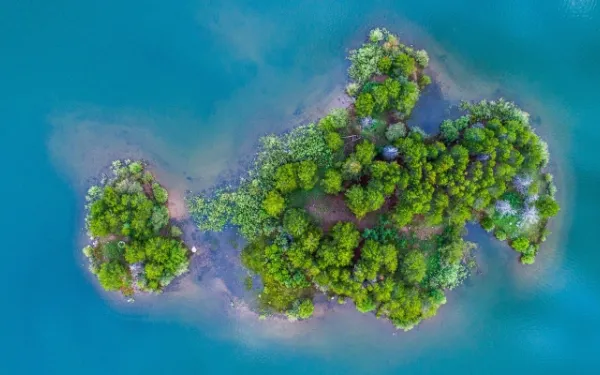
Project
Photo: Carlos AguileraProtecting the rich marine life of Cabo Pulmo Reef
Cabo Pulmo Reef, a 20,000-year-old ecological treasure in Baja California Sur, Mexico, hosts many of the 800 marine species in the Sea of Cortez.
Overfishing almost killed it in the 1980s. But the Mexican government intervened in 1995 to declare it a national park. Since then, the reef has grown, and the surrounding ecosystem has prospered.
Developers repeatedly try to build enormous tourist resorts at Cabo Pulmo. The proposed resorts typically include tens of thousands of hotel rooms, golf courses, an airport, sports clubs, and more—and require new housing development for thousands of employees.
Coral reefs like Cabo Pulmo are extremely vulnerable to the impacts of such poorly planned development. Sewage and wastewater runoff cause a surge in the growth of algae that blocks sunlight, causing the reef to bleach and die.
Fertilizers, herbicides, and pesticides from golf courses contaminate ocean currents and upset the delicate ecological balance of the area. Boating, fishing, and diving stress and break reefs, too.
In an area where water is scarce, tourism infrastructure projects could overexploit aquifers that are already suffering the impacts of climate change.
AIDA's work has been instrumental in ensuring the survival and health of Cabo Pulmo's ecosystems. We continue monitoring the situation and working with national partners to make legal protections for the reef stronger and permanent.
Partners:

Related projects

When nature is your best client
AIDA’s attorneys both hail from and live in Latin America, fostering a profound respect for the region’s natural environment and those who depend so intimately on it. They’re turning their knowledge into action, and working to protect communities and ecosystems vital to their national heritage. Uniting the environmental community in Bolivia Claudia believes in environmental justice. “If people are not guaranteed quality of life and an adequate natural environment, their basic human rights are being violated,” she said. This belief led her first to study law and then to work on behalf of civil society to promote the production of healthy, pesticide-free food. Small-scale agriculture, with less environmental impact and more community benefits, is what Claudia remembers best when she thinks of her childhood in Cochabamba, Bolivia. There were gardens behind every house. From a very young age, she grew berries and always had apples, figs, guava, and other fresh fruit on hand. But with urbanization, the valley where she grew up became a city, and buildings replaced the lush green landscape. “It was a complete shock to see these changes made in the name of progress.” Claudia knows that her contribution to a better world will come from environmental law, and that she will have a greater impact by reaching more people. That’s why she joined AIDA’s Freshwater Program, where she offers free legal support to governments, communities, and local organizations. One of Claudia’s greatest achievements has been to successfully unite isolated efforts across Bolivia to confront common environmental problems. This year Claudia oversaw the formation of the Environmental Justice Network of Bolivia, a space for organizations and individuals to develop joint strategies for environmental protection. As their first big event, the Network organized a two-day forum on how to achieve justice for damages caused by mining operations. “I’ve seen the ways that Bolivia’s indigenous peoples understand the world, and how they relate with Mother Earth. In cities, nature is seen as an object; for the indigenous, it’s the common house we must care for because it provides us with everything we have. I’ve made this vision my own.” Protecting coral reefs in Mexico Camilo’s first interaction with the ocean took place in Boca del Cielo, a remote beach on the coast of Chiapas, Mexico where a stream meets the sea. There, he played in the waves and ate seafood, saw his first sea turtle, and watched the monkeys and birds play in the tall mangroves. During his childhood in San Cristobal de la Casas, his father taught him to swim against the current in the Cascadas de Agua Azul, an important natural reserve. “My father loves nature and has always transmitted that feeling to my brothers and me,” said Camilo, who now lives with his son Emiliano en La Paz, Baja California Sur. Living in a coastal city has given him a newfound appreciation for the ocean and its vital connection to our land. Camilo applies this understanding to his work as an attorney with AIDA’s Marine and Coastal Protection Program. He is working, for example, to save the Veracruz Reef System, the largest coral ecosystem in the Gulf of Mexico, which serves as a natural barrier against storms and hurricanes and is a source of livelihood for fishing communities. The site is seriously threatened by the expansion of the Port of Veracruz. Camilo is working so that the Mexican government respects the international treaties it has signed, which obligate the preservation of the site and the biodiversity found within. Camilo remembers, when he studied law in Chiapas, exploring caves in his free time, to which local farmers guided him. “Being in touch with nature often leads you to small communities who care for and revere their connection with the natural world, values you quickly come to understand and share.” Seeking the rain in Brazil If anyone knows the value of the rain, it’s the people of Paraíba State in northeast Brazil, who have for years been hit by an extreme drought. There, according to official information, the number of cities without water nearly doubled between 2016 and 2017. “The drought has shaped our customs, our eating habits, and our culture,” says Marcella, who was born in the State’s capital city of João Pessoa. Now living in Recife, she is a fellow with AIDA’s Human Rights and the Environment Program. Through her role as an environmental and human rights attorney, Marcella seeks to soften the effects of the drought in Paraíba. The way she sees it, she’s helping to do so through her work on the case of the Belo Monte Dam. “Large dams are dirty energy, and they’re damaging the Amazon rainforest, a key ecosystem that regulates climate and helps ensure it rains not just in Brazil but around the world. By working on this case, I’m fighting for the existence of rain in my State,” she explained. Last June, Marcella paid her first visit to Altamira, the city closest to Belo Monte. She spoke with people whose way of life had been destroyed by the dam. “I met someone who used to fish, grow his own food, and sell what was left in the city; because of the dam, his island was flooded and he lost everything.” For Marcella, there is no better way to understand the severity of the impacts of these inadequately implemented projects than to listen to those affected by them. “It gives me a notion of reality. Helping to get justice for these people is an obligation for me. It’s the best I can do, using the tool I know best: the law.”
Read more
The hidden mine that threatens Colombia’s water
For me, a living thing like water can never be replaced by a non-living thing like gold. Gold should never be worth more than the water that gives us life. While those who defend mining often argue for it by saying that all human activity causes impacts, that line of thinking fails to address the underlying problem. When will we start recycling instead of extracting new resources? When will we stop assigning value to something as scarce but futile as gold? When will we treat the natural environments on which we depend with the respect they deserve? Taking these questions into account is critical not just for Colombia, my home, but also for all Latin American nations. In September I learned of the latest threat to one of our most important natural ecosystems, the Santurbán páramo. For centuries it has stood high in the Andes, keeping watch over the water of millions of us Colombians. For the last decade, mining companies have overlooked its ecological importance and angled to exploit the páramo’s lands for mineral wealth. For years, we’ve worked successfully to stop them. Now an international corporation has submitted the Environmental Impact Assessment for a new underground mining venture there. Located in the municipalities of Suratá and California, in northern Colombia, the mine would involve an intricate system of tunnels at least 2,000 meters long, 900 meters wide and 780 meters deep (only slightly shorter than the tallest building in the world, in Dubai). It would be built in two sections—traversing two river basins and two different municipalities—united by two immense 5,800-meter tunnels (nearly the expanse of the Colombian city of Bucaramanga from north to south). Previous attempts at mining near Santurbán have been rejected due to the potential damage they would cause to this unique natural environment, which serves as a key water source, a carbon sink, and shelters many endemic species of plants and animals. The risks of the project, examined The Company claims the new project will be different—no permanent accumulation of debris, no hazardous substances, no toxic sludge, and no mass infrastructure development. If this sounds too good to be true, that’s because it probably is. Could their venture really be different than the mega-mines that came before, or is it just dressed up that way? Let’s see: The company says the project’s only dump will be located near the mine and the waste will be dry. But dry waste in one site would require perpetual maintenance of the drainage network and other factors that, after the mine closes, it’s likely neither the company nor the State will be able to control. They say the project’s design would involve retro-filling all mining tunnels. But the impacts of drilling on the direction and volume of groundwater are unpredictable. It would be impossible to guarantee that the quality and quantity of water in the subsoil is conserved. They say that because the mine is technically outside the Santurbán páramo, it won’t affect the sensitive ecosystem. But technicalities aside, the mine would be only tens of meters below the páramo. Because it is an underground mine located in crystalline rocks, drilling could cross the multiple fractures through which water is transported to rivers, ravines and soils. They say the project will not use mercury or cyanide to obtain gold and other metals. By selling and exporting those metals to other companies in the form of ready-to-process concentrates, the company hopes to lessen the socio-ecological cost of the activity. But while it’s true Colombia may be spared the negative effects of toxic chemicals, that cost might be transferred to other countries, where the processing will take place. As Colombians we must begin to acknowledge the external impacts of our extractive industries, and stop ignoring our nation’s ecological footprint. The responsibility for the damages caused outside our borders by the mining that is done in Colombia is not only that of the buyer, but also of the Colombian State. Large-scale damages It’s important to understand that a hidden mine is not necessarily a better mine. What is done under the ground, especially on such a large scale, can do extensive damage to a much wider area. It’s a reality we must be keenly aware of in one of the most biodiverse countries in the world. We must think about the impact the mine would have on the quality and quantity of groundwater in the area, and the risks we’re taking by not having an adequate buffer zone for the páramo. Hiding the trash under the carpet does not mean you’ve cleaned, not in terms of the economy and certainly not in terms of mining. The protection of Santurbán, and that of other freshwater sources in Latin America, is one of the pillars of AIDA’s work. We’re proud to continue standing alongside our allies in Colombia and fighting to maintain the health of Santurbán.
Read more
5 ways our governments can confront climate change
As individuals, we know about the small actions we can take to help reduce the emissions that cause climate change. But what can and should our governments do, seeing as their large-scale actions are fundamental to the welfare of their people? Earth, we have a problem: we’re essentially melting. High rates of greenhouse gas emissions, paired with environmental degradation and the overexploitation of natural resources, have us in a race against time. Ninety-seven percent of scientists agree that climate change is a result of human activities. And if we fail to stop global warming soon, the changes will be catastrophic. Each year, at the United Nations climate conference, global leaders meet to discuss actions we can take to help prevent, and be better prepared for, climate change. At COP21 the first binding global climate accord, the Paris Agreement, was born. This year, during COP23, delegates seek to establish rules to allow for its proper implementation. As individuals, most of us understand what we can do to reduce emissions: save energy, use the car less, recycle more, make better consumption choices, and engage in family planning. But what can our governments do? To discuss their contribution is to talk about large-scale measures that are vital to ensuring a better future for all. 1. Protect and restore key ecosystems Respect for nature is fundamental. Governments must protect ecosystems key to the fight against climate change: rivers, wetlands, oceans, forests and mangroves absorb large quantities of carbon, slowing warming. Mangroves also serve as a barrier against tropical storms, and wetlands absorb excess water from floods, both extreme weather events exacerbated by climate change. “Healing the natural system is the most feasible, realistic and fair option, since it would benefit humanity and all species,” said Florencia Ortúzar, an attorney with AIDA’s Climate Change Program. “In terms of conservation and restoration, we’re in a race against time, and we’re already beginning to witness alarming natural phenomena, like forests so degraded they’re losing their ability to absorb carbon.” 2. Support small agricultural producers According to the FAO, the meat industry is responsible for 15 to 18 percent of all greenhouse gas emissions, exceeding even those of the transportation sector. In addition, it is the most significant source of water use and contamination in the world. Today, 80 percent of all agricultural production goes toward feeding animals not people. The expansion of land for livestock, and the crops to feed them, is the most significant cause of deforestation in the Amazon. Governments can make a difference by supporting small local producers who, unlike large factory farms, employ sustainable practices, care about land restoration, benefit nearby communities, and make animals and crops more resilient to climate change. It’s less about everybody becoming vegetarians, but more about supporting those who produce our food with a respect for nature. 3. Promote green energy Thirty-five percent of all global emissions come from energy production. But as countries bet on more development, they’re also betting on more energy production. But as countries bet on more development, they’re also betting on more energy. While thermoelectric and hydroelectric energies were long considered the cheapest options, technological developments have allowed us to find better, cheaper, more efficient alternatives. With proper long-term planning, nations can avoid old climate-aggravating energy sources (hydropower is not green) and opt for small wind, solar, geothermal, oceanic and other projects that adapt to a place’s unique characteristics. “When thinking about energy, it’s best to bet on a diversified matrix, prioritizing projects that are close to places where people need energy, saving on losses and infrastructure,” Ortúzar explained. “We must give absolute priority to the protection of nature. Every action, public policy, or strategy should be analyzed with nature in mind, and the production of energy is a good starting point.” 4. Combat short-lived climate pollutants Carbon dioxide (CO2) is the most infamous greenhouse gas. Since it remains in the atmosphere for centuries (even millennia), even if we stopped all its emissions sources today, the effects of climate change would continue. The good news is that other contaminants exist that contribute to climate change and only last a few days or years in the atmosphere. They’re known as short-lived climate pollutants, and they’re responsible for 30 to 45 percent of the emissions that cause global warming. These pollutants include black carbon (soot), methane, ozone, and the hydro fluorocarbons found in refrigerants. Their effective control, through national policies and regulations, could accelerate the fight against climate change in the short term. In addition, because they cause serious air pollution, measures to mitigate them would directly benefit human health. 5. Bet on adaptation, not just mitigation In the fight against climate change, work aimed at reducing emissions, stopping their effects and diminishing future consequences is known as mitigation. It is important. However, some communities are already experiencing tragic consequences due to changes in climate over a short period of time. So we also must act to prevent catastrophes, increase resilience, and reduce vulnerability, which is known as adaptation. Projects to mitigate emissions are more attractive financially than those designed for adaptation, which are generally focused on the most vulnerable communities. But it is important to give adaptation the significance it deserves in recognition of the fact that the impacts of climate change are already a grave reality for many. At this year’s COP, representatives are discussing a “loss and damage” mechanism, referring to the compensation that developed countries – the main causes of climate change – must make to developing countries, which suffer significant losses due to adverse climate effects, Ortúzar explained. Our governments must support these discussions and commit to the effective use of resources, so all the world’s people can be better prepared for, and help to prevent, greater changes to our climate.
Read more